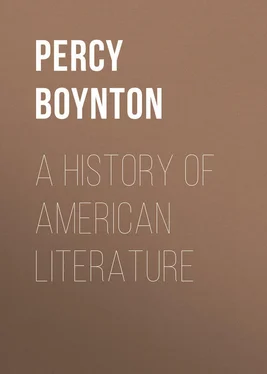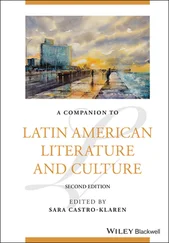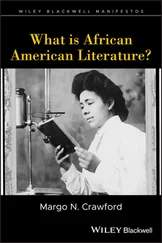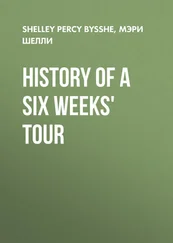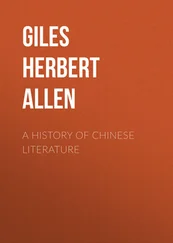Percy Boynton - A History of American Literature
Здесь есть возможность читать онлайн «Percy Boynton - A History of American Literature» — ознакомительный отрывок электронной книги совершенно бесплатно, а после прочтения отрывка купить полную версию. В некоторых случаях можно слушать аудио, скачать через торрент в формате fb2 и присутствует краткое содержание. Жанр: foreign_antique, foreign_prose, на английском языке. Описание произведения, (предисловие) а так же отзывы посетителей доступны на портале библиотеки ЛибКат.
- Название:A History of American Literature
- Автор:
- Жанр:
- Год:неизвестен
- ISBN:нет данных
- Рейтинг книги:4 / 5. Голосов: 1
-
Избранное:Добавить в избранное
- Отзывы:
-
Ваша оценка:
- 80
- 1
- 2
- 3
- 4
- 5
A History of American Literature: краткое содержание, описание и аннотация
Предлагаем к чтению аннотацию, описание, краткое содержание или предисловие (зависит от того, что написал сам автор книги «A History of American Literature»). Если вы не нашли необходимую информацию о книге — напишите в комментариях, мы постараемся отыскать её.
A History of American Literature — читать онлайн ознакомительный отрывок
Ниже представлен текст книги, разбитый по страницам. Система сохранения места последней прочитанной страницы, позволяет с удобством читать онлайн бесплатно книгу «A History of American Literature», без необходимости каждый раз заново искать на чём Вы остановились. Поставьте закладку, и сможете в любой момент перейти на страницу, на которой закончили чтение.
Интервал:
Закладка:
confin’d the subject of his work
To the gay scenes – the circles of New York.
The fourth and last play for any detailed comment here is “André” (1798) by William Dunlap (1766–1839). Dunlap asked for recognition, as Tyler had done, on nationalistic grounds,
A Native Bard, a native scene displays,
And claims your candour for his daring lays;
and he took heed, as Rogers seems not to have done, of the risk he was running in entering the perilous straits of political controversy in which “Ponteach” was stranded before it had reached the theater:
O, may no party spirit blast his views,
Or turn to ill the meanings of the Muse;
She sings of wrongs long past, Men as they were,
To instruct, without reproach, the Men that are;
Then judge the Story by the genius shown,
And praise, or damn it, for its worth alone.
Party feeling was high at the time over the opposing claims of France and England – “The Rival Suitors for America,” as Freneau called them in his verses of 1795. “Hail Columbia,” by Joseph Hopkinson, made an immediate hit when sung at an actors’ benefit less than four weeks after the production of “André,” and made it by an appeal to broad national feeling. And Dunlap, after a slip of sentiment in the first performance, kept clear of politics, and showed tact as well as daring by making the Briton heroic, though a spy, and by his fine treatment of the unnamed “General,” who was evidently Washington. Dunlap’s play showed a ready appreciation of theatrical effectiveness. It was the work of a playmaker rather than a poet, and the verse had none of the elevation of Godfrey’s or Rogers’s. It was far better than the declamatory stage efforts of the Revolutionary years by Brackenridge, Leacock, Low, and Mercy Warren, and it was the best early specimen of the historical romance for which there is always a ready patronage.
Dunlap is more significant as an all-round man in the early history of the American theater than as a pure dramatist. He was a good judge of what the public wanted, and fairly able to achieve it. What he could not write he could translate or adapt. He turned Schiller’s “Don Carlos” into English, and it failed; but he made a great success of Zschokke’s “Abaellino” and translated no less than thirteen plays of Kotzebue. A comic opera, a dramatic satire, a farce, or an interlude seemed all one to him in point of ease or difficulty. From 1796 to 1803 he produced more than four plays a year under his own management at the Park Theater in New York. He continued as a manager till 1805 and was connected with the theater again in 1810–1811. Finally, to cap all, in 1832 he published in two volumes his “History of the American Theater,” which, though inaccurate in many details, is full of the personal recollections of men and events that no amount of exact scholarship could now unearth.
The really auspicious beginnings in American play-writing up to 1800 were hardly followed up in the period before the interruption of the drama by the Civil War. One man stands out, John Howard Payne (1791–1852). Starting as a precocious boy actor and a dramatist whose first play was staged at the age of fifteen, he developed into a reputation greater than that of Dunlap, but in the perspective of time little more enduring. His “Brutus” was played for years by well-known tragedians, and his “Charles II,” in which Washington Irving had a hand, was long successful as a comedy. But he was too prolific for high excellence, and he did nothing new. Now and then men who wrote abundantly produced single plays of rather high merit though of imitative quality, such as Robert Montgomery Bird’s “Broker of Bogota.” There was a generous output, but a low level of production; tragedies, historical plays, comedies of manners, local dramas, social satires, melodramas, and farces followed in steady flow. Successful novels of Cooper, Simms, Mrs. Stowe, and writers of lesser note were quickly staged, but no one of undoubted distinction came to the fore. Writers in other fields, like Nathaniel Parker Willis, the essayist, George Henry Boker, the poet, and Julia Ward Howe, turned their hands at times to play-writing with moderate success. But it is significant that the conspicuous names of the period were names of actors and producers rather than of playwrights. The history of the American stage has been unbroken up to the present time, but it was not until near the end of the century that the literary material presented on the stage became more than a vehicle for the enterprise of managers and the talents of actors. This later stage will be briefly discussed in one of the closing chapters of this book.
BOOK LIST
General References
Crawford, M. C. The Romance of the American Theater. 1913.
Dunlap, William. History of the American Theater. 1832.
Hutton, Laurence. Curiosities of the American Stage. 1891.
Moses, Montrose J. Famous Actor-Families in America. 1906.
Moses, Montrose J. The American Dramatist. 1911.
Seilhamer, G. O. History of the American Theater, 1749–1797. 3 vols. 1888–1891.
Tyler, Moses Coit. Literary History of the American Revolution, 2 vols. Vol. II, chap. xxxii.
Winter, William. The Wallet of Time. 2 vols. 1913.
Collections
Moses, Montrose J. Representative Plays by American Dramatists, Vol. I. 1918. Vols. II and III in press.
Quinn, Arthur H. Representative American Plays. 1917.
Special Articles
Gay, F. L. An Early Virginia Play. Nation , Vol. LXXXVIII, p. 136. 1909.
Law, Robert A. Early American Prologues and Epilogues. Nation , Vol. XCVIII, p. 463. 1914.
Law, Robert A. Charleston Theaters, 1735–1766. Nation , Vol. XCIX, p. 278. 1914.
Matthews, Albert. Early Plays at Harvard. Nation , Vol. LXXXVIII, p. 295. 1909.
Neidig, W. J. The First Play in America. Nation , Vol. LXXXVIII, p. 86. 1909.
Quinn, Arthur H. The Early Drama, 1756–1860. Cambridge History of American Literature, Vol. I, Bk. II, chap. ii.
TOPICS AND PROBLEMS
The best available sources of material are the collection of A. H. Quinn, which contains three of the plays mentioned in detail, and the first volume of the collection of M. J. Moses, which contains all four, and a half dozen more from the early period.
There is no need of suggesting specific topics in connection with the different plays. Each one may be read with reference to its story content – the kind of plot, of characters, of scenes, of episodes – or with reference to the skill with which it was written – the construction, the characterization, the supply of motives for action, the dialogue, the prose or verse style – or with reference to the personality of the author and the “signs of the times” – the purpose of the play, the moral, intellectual, and æsthetic character and prejudices of the author.
If the student is working toward a report – written or oral – he will arrive at a satisfactory result only as he limits himself to one very definite subdivision and presents his findings in detail.
CHAPTER VIII
CHARLES BROCKDEN BROWN
The first professional man of letters in America, and the last of note who was born before the Revolution, was Charles Brockden Brown. His short life, from 1771 to 1810, was almost exactly contemporary with the productive middle half of Freneau’s long career. That he earned his living by his pen is a matter of incidental interest in American literary history; the more important facts are that he looms large in the chronicles of the American novel and that he was a factor in the development of the American periodical.
Читать дальшеИнтервал:
Закладка:
Похожие книги на «A History of American Literature»
Представляем Вашему вниманию похожие книги на «A History of American Literature» списком для выбора. Мы отобрали схожую по названию и смыслу литературу в надежде предоставить читателям больше вариантов отыскать новые, интересные, ещё непрочитанные произведения.
Обсуждение, отзывы о книге «A History of American Literature» и просто собственные мнения читателей. Оставьте ваши комментарии, напишите, что Вы думаете о произведении, его смысле или главных героях. Укажите что конкретно понравилось, а что нет, и почему Вы так считаете.
